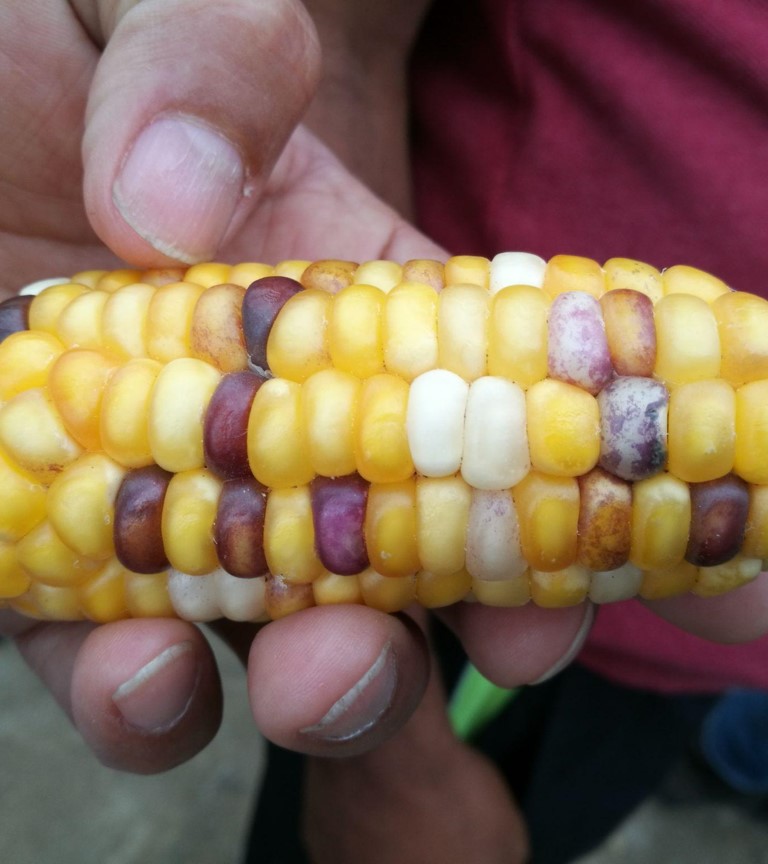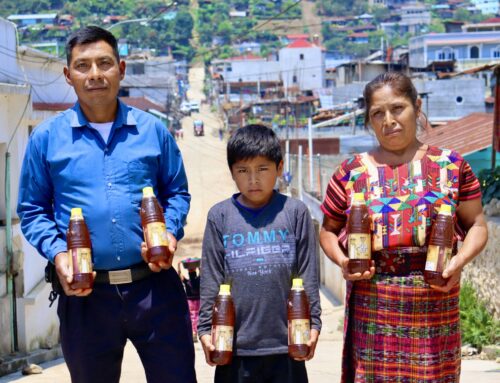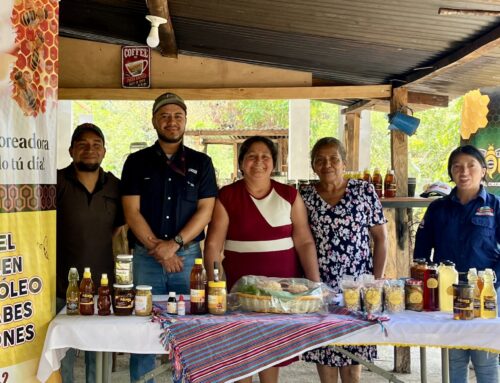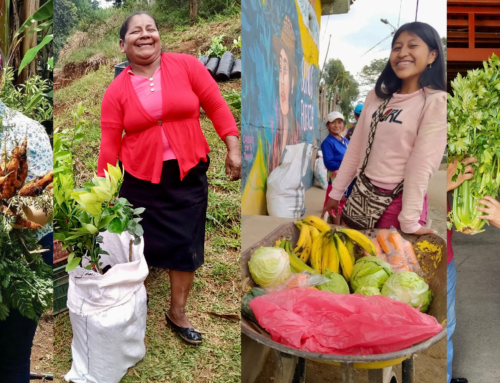Food 4 Farmers Diagnostic Confirms Coffee Farmers Lose a High Percentage of Basic Grains During Postharvest Storage
Coffee producing families are facing a perfect storm of unstable coffee prices, rising cost of coffee and food production, and inflated food prices, all of which are affected by current events such as the war in Ukraine and the negative impacts of climate change. This is the harsh reality in the communities where we work.
To feed themselves, coffee farming families rely on food they have produced on the farm and food that they have purchased. In Guatemala, where we collaborate with two coffee cooperatives, basic grains are mostly maize and beans, and families traditionally dedicate a small plot of their land to grow them during two or three harvest seasons each year. Family production in this region usually lasts for a significant part of the year, a period when they can rely on their own production and avoid buying food at the market. Unfortunately, a concern brought to our attention by farmers is the loss of their production during post-harvest storage. Much of this loss can be attributed to the development of fungus and insects inside containers and/or damage caused by larger animals like rodents, which are all causes that can be avoided with appropriate technology and training.
In 2021, Food 4 Farmers partnered with GrainPro, a company specializing in Ultra Hermetic TM technology used to store basic grains and more. Like Food 4 Farmers, GrainPro wanted to know more about the challenges that our program participants are facing when trying to store their basic grains for later consumption or sale. To learn and better understand the challenges and impact of the postharvest period we conducted a household diagnostic with the ACODIHUE cooperative in Huehuetenango, Guatemala, one of our program sites.
A few results of this study are worth mentioning. First, only 59% of the diagnostic participants said they produce basic grains. A lot of the people who participated in the diagnostic were women, and they told us that as the growing number of men leave to find jobs in the United States, they take their knowledge and labor power to produce food with them. They also mentioned that because of migration, they are having trouble finding people to help them with the coffee harvest, which greatly affects their annual income. Whether they produce all, part, or none of the basic grains they consume[1], coffee farming families living far away from food markets need to store it for a period of time. Shockingly, 79% of all participants said that they consistently lose basic grains during storage. Almost all participants said that losing this food represents a significant hardship for them in terms of food, time, and money for the family. One of the producers said, “I estimate that with what I lose I could feed my family for two months every year!”
With the information collected through the diagnostic, we plan to develop a pilot program centered on improving food production and storage technologies by addressing some of the primary challenges experienced by coffee farming families during the postharvest season. Stay tuned!
[1] For coffee growing families, buying basic grains has several advantages, including saving time and land that can be used for cash crops, purchasing small amounts of food, so it doesn’t go bad in storage, and having the choice to select different types of basic grains rather than having to grow the same varieties that do well in their area. However, coffee farmers’ livelihood conditions have not been easy for the last two decades because of flat coffee prices, increases in the costs of production, increasingly negative effects from climate change, and the increases in the costs of living driven by inflation. Unfortunately, these conditions have become more extreme due to the pandemic and the war in Ukraine, and the prospect is that they will continue to worsen. Most worrisome is the exorbitant increase in the price of staple foods. When discussing these circumstances during the focus groups, participants expressed interest in increasing their production of maize and beans to save some money, but many also mentioned their inability to preserve the grain in storage for more than a couple of months.




